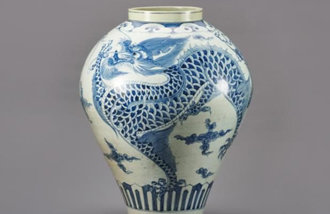Is Police Club an Interest Group?
Reports indicate that the Mugunghwa Club, a club consisting of former and incumbent police officers, played a considerable role in the revision of the Police Officer Law that enables low-ranking police officers to be automatically promoted to lieutenant after working for a set period of time.
The club that consists of former and incumbent police officers was established in September and the number of its members has increased to about 10,000 just three months after its launching. The clubs website made public that 1,200 people joined it on September 10, the first day of its launching, and that a total of 4,428 incumbent police officers became members even one month after its launching.
Jeon Gyeong-soo, a professor at Wonkwang Digital University, who started his police officer job as a policeman and retired from his post when he served as a lieutenant, is serving as chairman of the club. The fee for its membership costs 10,000 won.
At the time when this group was launched, it clarified its character as an interest group, saying, This group was set up in order to help pass the revised police officer law that enables low-ranking police officers to be promoted to police inspectors at the National Assembly.
Its members made public through website postings regarding their activities in which they conveyed their opinions that low-ranking police officers should be promoted sooner to ruling and opposition lawmakers who belong to the Government Administration and Local Autonomy Committee (GALAC) of the National Assembly on September 12, right after its launching.
On top of that, on September 13, its leadership visited offices of the ruling Uri Party lawmaker Choe Kyoo-sik and the main opposition Grand National Party lawmaker Kwon Oh-eul, both of whom belong to the GALAC, and delivered a statement that supports the reform of the Police Officer Law. They also sent this sort of materials to all ruling and opposition lawmakers on September 28.
In the process of conducting such activities, they pressed the leadership of the police, saying, If the police do not guarantee low-ranking police officers promotion sooner they currently are, we will not cooperate with the thorny issue of adjusting investigative authority between the prosecution and police as well as the issue of whether Korea National Police University should be retained.
Some club members posted messages asking lawmakers to enable rank-and-file police officers to be promoted sooner and to side with the police on the issue of independent investigative authority on the ruling and opposition lawmakers websites and the Cheong Wa Dae website, and when they saw some postings against their stance on some websites, they flooded those websites with a slew of replies that refute such claims outspokenly.
Under the current law, public officials collective activities are banned. The Constitutional Court ruled this clause constitutional in October.
Some point out that the clubs activities in which incumbent police officers who serve as public officials join and are active are in conflict with the National Public Official Law that bans public officials from staging collective activities.
In response, Chairman Jeon retorted the charges, saying, The National Police Agency has urged us not to stage collective activities, but I dont think that gathering the publics opinion and delivering it to the political sector on the Internet as a form of a gathering fall under the sphere of collective activities.
woogija@donga.com needjung@donga.com







